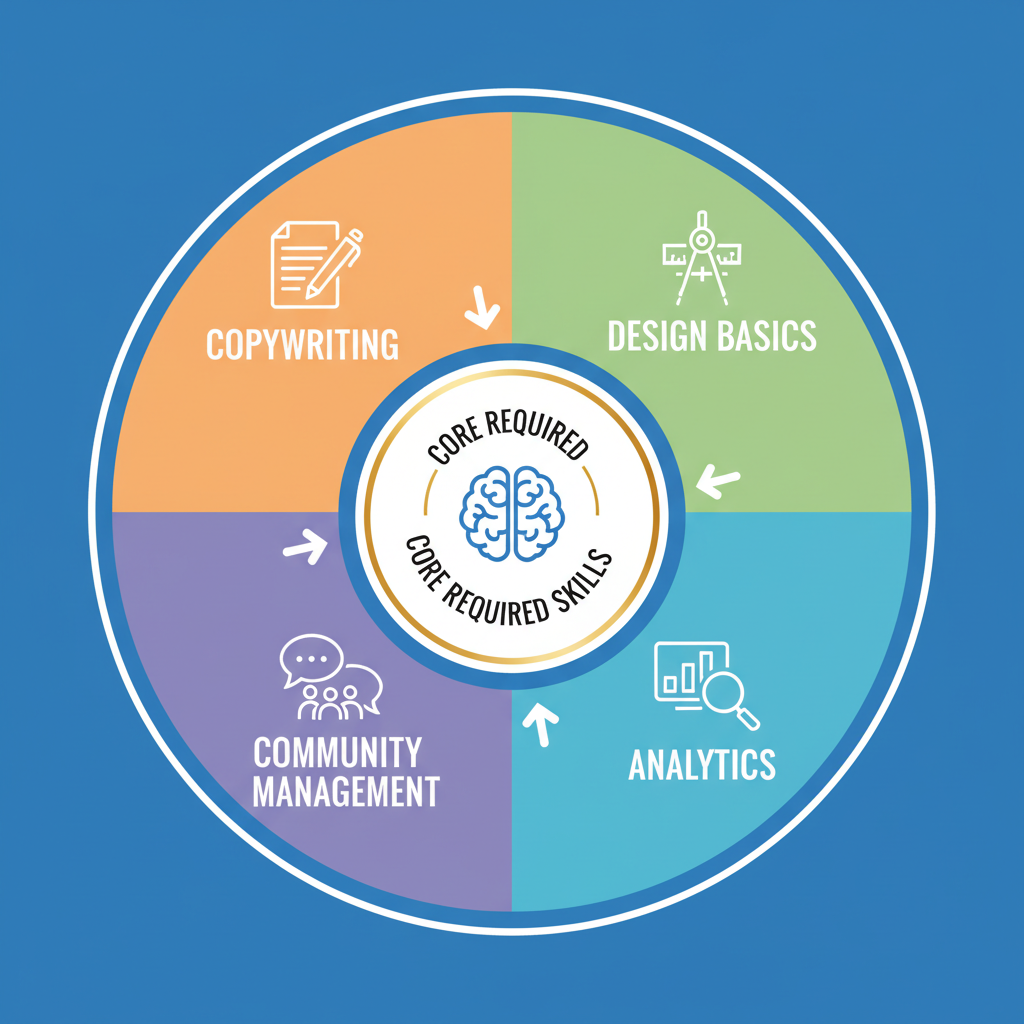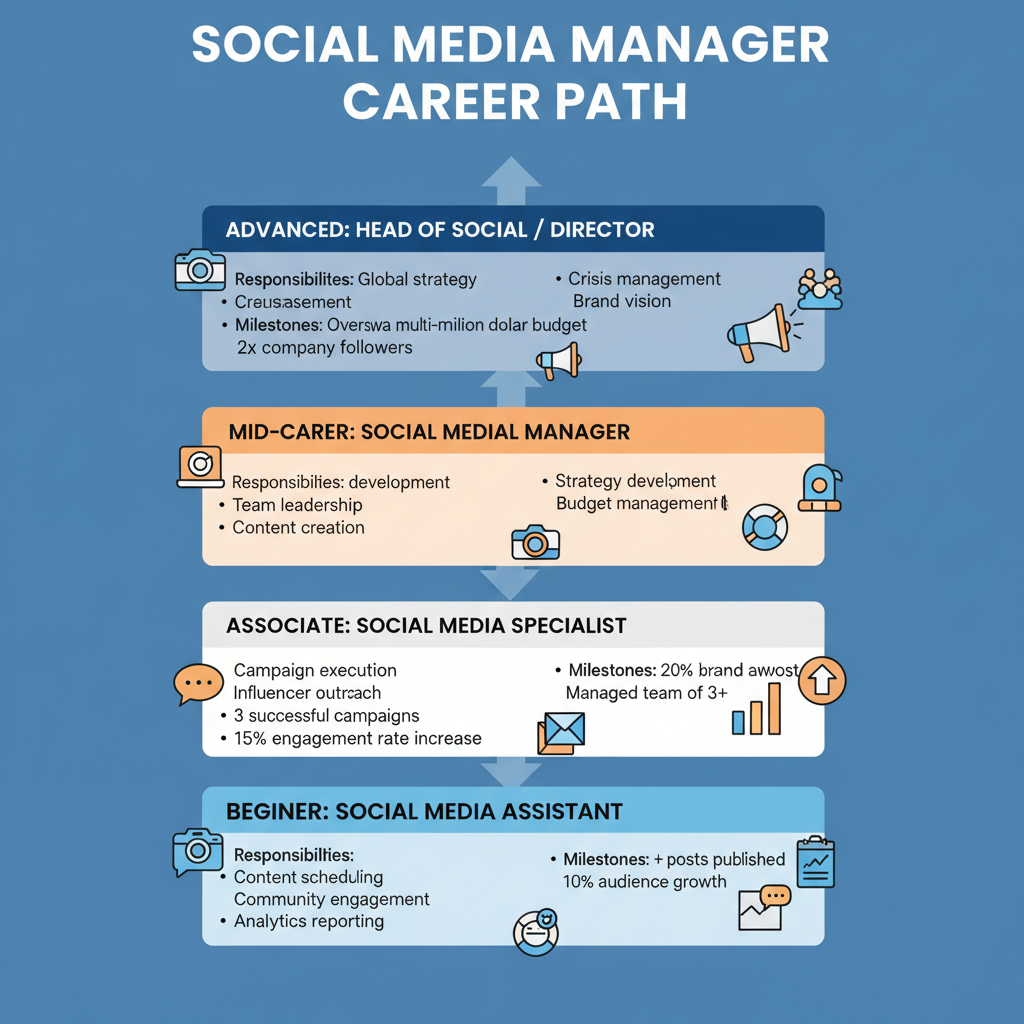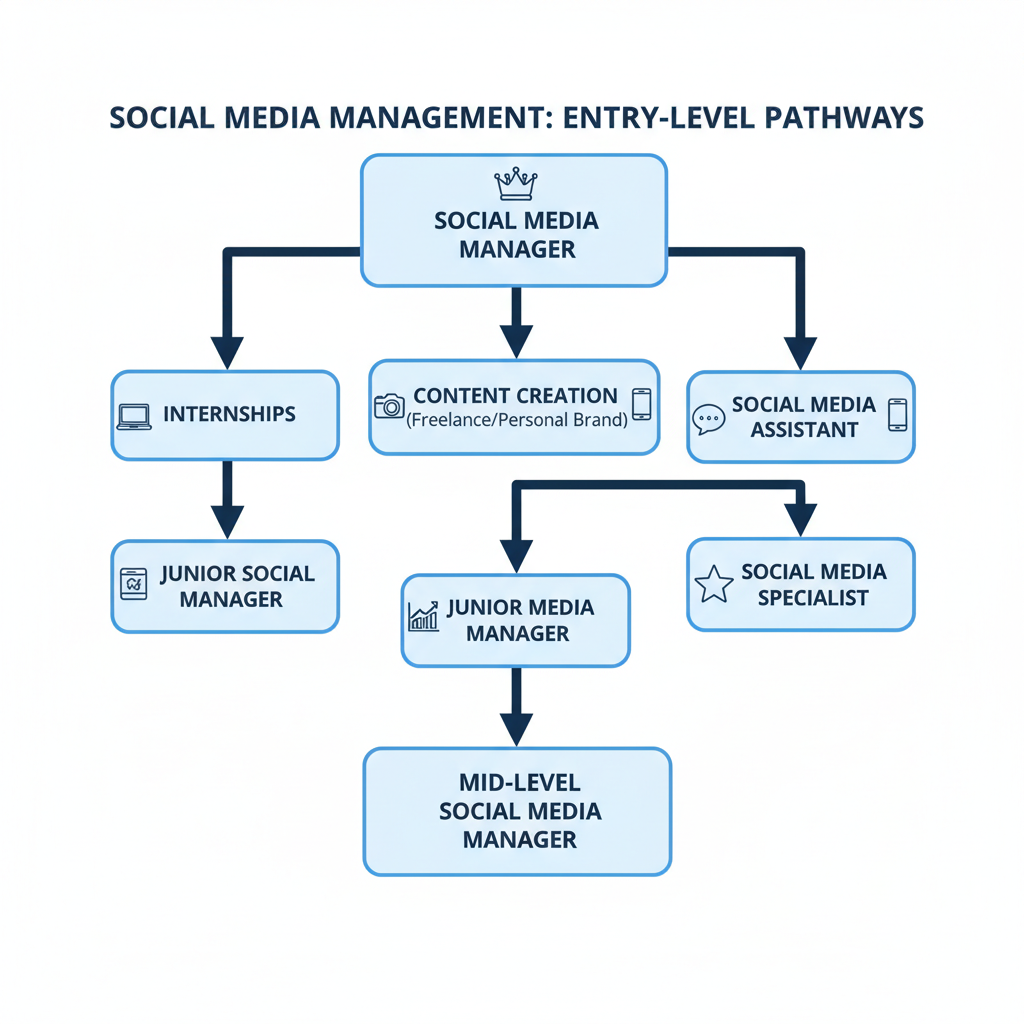Social Media Manager Career Path Guide From Beginner to Pro
Learn the social media manager career path from entry-level to leadership roles, with key skills, portfolio tips, and growth strategies.

Social Media Manager Career Path Guide From Beginner to Pro
Embarking on the social media manager career path can open doors to exciting opportunities that bridge creativity and strategy. This evolving profession connects brands with audiences, shapes public perception, and drives measurable business outcomes. Whether you are just breaking into digital marketing or seeking to advance into senior leadership, understanding the journey from beginner to seasoned pro will help you set actionable milestones and grow with confidence.
Social media management blends storytelling artistry with data analysis, community building, and adaptability to new tools and trends.

---
Overview of the Social Media Manager Role
A social media manager develops, executes, and optimizes a brand’s presence on platforms such as Facebook, Instagram, TikTok, LinkedIn, and X (formerly Twitter). This role directly influences brand awareness, engagement, and lead generation.
Core responsibilities include:
- Creating and scheduling posts aligned with brand tone and strategy.
- Engaging followers through comments, messages, and community initiatives.
- Monitoring analytics and preparing performance reports.
- Collaborating with marketing, design, and product teams.
- Staying updated on trends and algorithm changes.
---
Required Skills to Succeed
Success in the social media manager career path requires a blend of creative talent and technical know-how.
Copywriting
Craft captivating captions, headlines, and scripts that resonate with target audiences.
Design Basics
Grasp principles of composition and color theory; use tools like Canva, Adobe Photoshop, or After Effects for visuals.
Analytics
Interpret metrics like engagement rate, reach, CTR, and conversion rates to inform strategy.
Community Management
Build and maintain loyal online communities, manage feedback, and moderate discussions.

---
Entry-Level Pathways to Break In
For newcomers, gaining experience through entry-level opportunities is critical.
- Internships: Many companies offer social media internships that provide real-world exposure.
- Assistant Roles: Support social teams with scheduling, reporting, and asset coordination.
- Freelance Projects: Help small businesses or entrepreneurs establish an online presence.
- Personal Projects: Run a blog, YouTube channel, or niche Instagram to hone your skills.
---
Building a Strong Personal Brand and Portfolio
Your portfolio showcases your professional capabilities. Highlight content creation, audience engagement, and measurable results.
Steps to build your brand:
- Select a niche or aesthetic that demonstrates your expertise.
- Publish consistent content across your own channels to serve as proof of work.
- Document case studies with process, objectives, and metrics.
- Maintain a professional website featuring your top campaigns, visuals, and testimonials.

---
Progressing to Mid-Level Roles
With 2–4 years of experience, you can advance from execution to strategy-focused positions.
Possible titles:
- Social Media Specialist
- Content Strategist
- Digital Marketing Associate
- Community Lead
Responsibilities include campaign planning, cross-platform coordination, and mentoring juniors.
---
Advanced Career Opportunities
At senior levels, social media managers transition into leadership or consulting roles.
High-level roles:
- Social Media Director: Oversees the social media function, aligning efforts with corporate goals.
- Head of Digital: Leads integrated digital programs spanning social, SEO, and paid advertising.
- Consultant: Advises multiple clients across industries.
Key leadership skills:
- Budget oversight
- Executive communication
- Long-term strategy
- Crisis management
---
Certifications and Ongoing Education
Continual skill enhancement is essential for long-term success in the social media manager career path.
Recommended certifications:
- Google Digital Garage (Digital Marketing Foundations)
- Meta Blueprint (Facebook & Instagram Ads)
- HubSpot Social Media Certification
- LinkedIn Marketing Labs courses
Continued learning example topics:
- Workshops on new platform features
- Advanced analytics and A/B testing
- Fundamentals of video production and editing
---
Networking Strategies for Career Growth
Building a network expands opportunities and keeps you informed of industry shifts.
Proven methods:
- Attend marketing or social media conferences.
- Join LinkedIn groups focused on content and community.
- Engage in online communities such as Reddit’s social media threads.
- Comment meaningfully on industry leaders’ posts.
---
Emerging Trends Shaping Careers
The digital world changes rapidly, influencing how strategies are designed.
Notable trends:
- AI Tools: Use for captions, content suggestions, and sentiment analysis.
- Video-First Content: TikTok and Instagram Reels dominate attention spans.
- Personalization: Craft messages targeted to audience segments based on behavior.
Proactive experimentation positions managers as innovators.
---
Salary Expectations and Factors
Compensation varies widely by location, experience, and sector.
| Career Stage | Typical Salary (USD) | Influencing Factors |
|---|---|---|
| Entry-Level | $35,000 - $50,000 | Company size, location, skill set |
| Mid-Level | $50,000 - $75,000 | Experience years, proven ROI, role scope |
| Senior/Director | $80,000 - $120,000+ | Leadership accountability, strategic impact |
---
Tips for Career Longevity
Given the fast pace and frequent deadlines, sustainable success requires mindful practices.
- Set boundaries: Avoid burnout by defining work hours.
- Delegate effectively: Share workload with tools and colleagues.
- Plan downtime: Take breaks to spur creativity.
- Maintain wellness: Incorporate mindfulness and physical activity.
- Skill refresh: Regularly update your expertise.
---
Summary and Next Steps
Mapping out the social media manager career path from entry to expert shows the progression from mastering foundational skills to steering high-level strategies. By honing your craft, networking wisely, embracing trends, and caring for your well-being, you position yourself to thrive in this competitive field.
If you’re ready to grow your career, start by identifying the skills you need next, update your portfolio, and connect with peers in the industry — your pathway from beginner to pro begins today.



